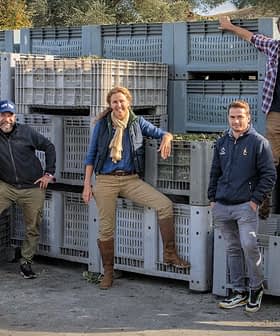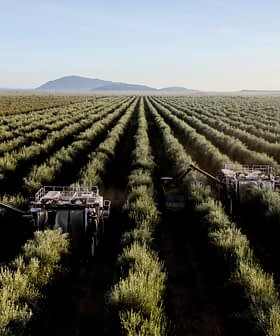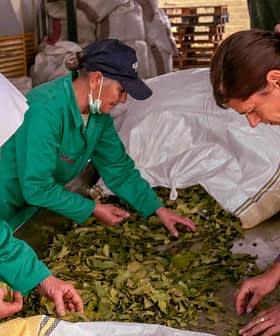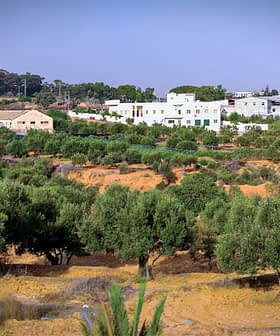Oppose Tariffs on Healthy Foods Americans Need
President Trump views tariffs as beautiful, but they could negatively impact Americans who rely on olive oil for its health benefits. The North American Olive Oil Association is working to educate policymakers about the potential negative effects of tariffs on olive oil and advocate for keeping the essential food affordable and accessible.
Beauty is in the eye of the beholder.
President Trump campaigned for a second term saying that “tariff” was the most beautiful word in the English language, so it was easy to predict that tariffs would be a hallmark of this administration.
But they may not be so beautiful for the millions of Americans who love and rely on olive oil.
Olive oil is an essential, nutritious food. It’s the healthiest cooking oil people can use. And the United States cannot meet more than 2% of domestic demand. Since American olive trees don’t have a magic switch to supercharge production, tariffs would only hurt American consumers by driving up prices.
That’s the message the North American Olive Oil Association (NAOOA) has been conveying to policymakers and federal agencies since early this year. We aim to show leaders in Washington, D.C. that tariffs on olive oil would essentially be a tax on the health of the American people.
We are optimistic that olive oil has some natural allies in this administration. For example, the U.S. Department of Health and Human Services (HHS), led by Robert F. Kennedy, Jr., and the Make America Healthy Again (MAHA) caucus in Congress have made nutrition a major focus.
Senator Roger Marshall, M.D, a founder of the MAHA caucus, gave an interview in which he effectively articulated a strong science-based case against tariffs on healthy foods like olive oil for which there is no adequate domestic supply:
“About 70% of your health outcomes are determined by you,” the Senator said. “It’s determined by what you eat and what you’re surrounded by. By the time you come to my office as a doctor, I can impact maybe 10 or 20% of your health outcomes…we need to make these healthy foods affordable, available as well…”
Unfortunately, we know what happens when olive oil becomes more expensive. Over the past two years, poor harvests have resulted in much higher retail prices, including a 25% average increase in 2024 alone. As a result, two million fewer American households bought olive oil in 2024 than in 2023.
While that’s terrible news for the olive oil category, the data show that virtually all families who stopped buying earned less than $100,000 annually. The most significant drop came in families earning $40,000-$49,000 annually.
It’s easy to predict that tariffs would similarly harm lower-income families most of all. Sadly, these Americans would benefit the most from better dietary options to improve their health outcomes, but for whom even the least expensive olive oil will become unaffordable.
Increasing U.S. production is often an important and worthy goal of tariff policies, but in the case of olive oil, current domestic production is tiny relative to consumption, and appreciably increasing it can’t and won’t happen for the foreseeable future without policies supporting more investment. Olive trees take time to grow, and the investment needed is significant.
These are all topics that were covered at a recent event, “Drops of Health,” that the NAOOA co-hosted with the Olive Oil World Congress (OOWC) in Washington, D.C. Held one week before President Trump’s April 2, 2025, tariff announcement, Drops of Health attracted a lot of interest among Hill staffers, federal agency personnel and media.
Coupled with NAOOA’s broader outreach efforts, the OOWC event provided a platform to educate lawmakers and policymakers about olive oil and how it’s consumed and produced in this country. Indeed, Congressman Deluzio attended and spoke about how his ethnic heritage helped instill his deep respect for olive oil.
Representative Deluzio’s comments echoed sentiments we heard from other members of congress and their staff from both sides of the aisle in meetings this year trying to cultivate champions for olive oil issues in general, including our pending petitions for a standard of identity and an ag-product promotion program, which are before the U.S. Food and Drug Administration and U.S. Department of Agriculture respectively. Both of these initiatives should resonate with the MAHA agenda, as should avoiding tariffs on healthy foods for which there is no adequate domestic supply.
Anyone’s guess is where the tariff saga will go from here. Yesterday, the President announced a 90-day pause that effectively reduces the tariffs to 10% for now. What is clear, however, is that our industry must continue to promote our tried-and-true health message to leaders in Washington, D.C.
Through that effort, we can and will demonstrate how important it is to keep this essential, healthy food affordable and accessible to all Americans.
Joseph R. Profaci is executive director of the North American Olive Oil Association







